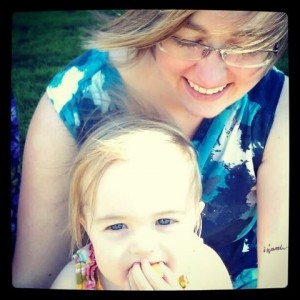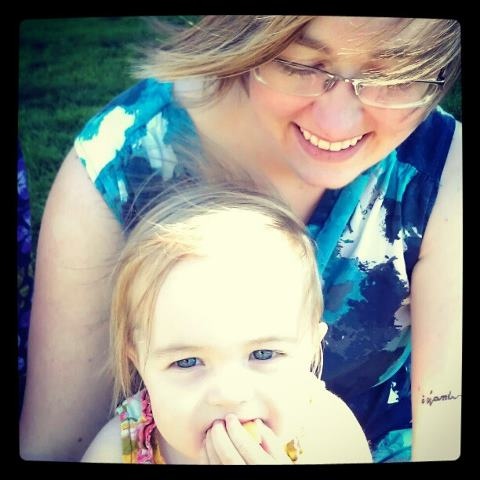Promised Land Fantasies – Shifts in Scripture and Self by Abby King-Kaiser
 Then Moses went out and spoke these words to all Israel: “I am now a hundred and twenty years old and I am no longer able to lead you. The LORD has said to me, ‘You shall not cross the Jordan.’ The LORD your God himself will cross over ahead of you. He will destroy these nations before you, and you will take possession of their land. Joshua also will cross over ahead of you, as the LORD said. And the LORD will do to them what he did to Sihon and Og, the kings of the Amorites, whom he destroyed along with their land. The LORD will deliver them to you, and you must do to them all that I have commanded you. Be strong and courageous. Do not be afraid or terrified because of them, for the LORD your God goes with you; he will never leave you nor forsake you.” – Deuteronomy 31:1-6
Then Moses went out and spoke these words to all Israel: “I am now a hundred and twenty years old and I am no longer able to lead you. The LORD has said to me, ‘You shall not cross the Jordan.’ The LORD your God himself will cross over ahead of you. He will destroy these nations before you, and you will take possession of their land. Joshua also will cross over ahead of you, as the LORD said. And the LORD will do to them what he did to Sihon and Og, the kings of the Amorites, whom he destroyed along with their land. The LORD will deliver them to you, and you must do to them all that I have commanded you. Be strong and courageous. Do not be afraid or terrified because of them, for the LORD your God goes with you; he will never leave you nor forsake you.” – Deuteronomy 31:1-6
I am about two and a half years into my first call. I am a designated solo pastor of a small Presbyterian Church in Oakland, CA. I work ¾ time. I took the call knowing that this congregation had been in decline for almost as long as I had been alive. I took the call following a beloved pastor–young, community driven, an intelligent preacher who had seen many in the congregation through personal crises, a renaissance man of sorts. In the first months, I was often asked how I dealt with the “myth of Monte,” and my response was that I didn’t. I was not Monte, I could never be Monte. I as sought to develop my own pastoral identity in my first call, I relied heavily on the wisdom in the story of the end of Moses’ leadership. I was Joshua, too young and too green, but passionate and perhaps skilled, relying on a sense of calling and faith that would both be put to the test.
The fantasy I held at the time was that the Promised Land–a quirky, cute and healthy church that was a pillar of its community, that impacted it city, that had enough money, enough time, enough energy, and that was above all a community of faithful disciples of Christ–was out there and just outside of our grasp. My job was to keep us walking in the wilderness, inching our way toward the Promised Land.
I anticipated the constantly shifting environment of urban ministry. I even embraced it. I loved being a preacher one day, a community organizer the next, a teacher the day after that. I thrived on the anticipation of what my week would bring.
As I began to dig into the role, even with the job description handed to me with the keys on day one, I quickly realized that I didn’t know how to define my role as pastor. Where did my leadership end and the lay leadership begin? When should I do and when should I delegate? Which of the constant demands were the most pressing, the most relevant, or the most likely to help us keep moving towards the promised land? As I tried this and that, I waded my way through the role, constantly shifting how I understood what my job was to be.
My coping mechanism in the uncertainty was to do what I felt most “called” to do. I focused on the ministries that were at the intersection of my gifts and the community’s needs (as a good student of my high school’s service learning program would have). I worked on deepening the community and discipleship of our youth and young adults, on bringing creativity into worship, on building relationships with the beautifully diverse people who make up our congregation and city. I found work that fed me and helped me to do the work of the role that was not always my best–preaching week in and week out, attempting to provide guidance and care to those much older than me, performing the symbolic presence of God in worship, in the community and in the lives of our congregation. The constant shifting empowered me to be a minister, to find confidence in the work I was prepared for so that I could do the work I was unprepared for. Little by little, the shifting became more fluid and intentional, a direct outgrowth of my faith, my identity and my call.
But what of that Promised Land? My church still felt like it was just over the horizon, if only… if only… if only. Gradually, we began to make those “if only” shifts. If only we had different music, it would bring in new people. If only we didn’t feel so lost in this big sanctuary. If only our building brought income instead of being a burden. If only we could completely change worship… Our music changed. Our building has gotten busier and generates income. We started a new worship service, deeply rooted in our Reformed heritage but geared toward creative conversation and transformation. And still the decline continued, as did our journey in the wilderness.
In the midst of all of this, my relationship to Deuteronomy 31 shifted. The scripture that had been an affirmation for me, a confidence builder, began to challenge me with some hard questions. What if we got the destination wrong? What if, like the ancient Isrealites, we mis-understood God’s vision for our future, time and time again? What if I was not Joshua at all?
As I lived with my leadership, as I lived more fully into my call to this particular congregation, I started to see myself as Moses instead of Joshua. Something happened this winter as I read that text and noticed that Moses said–I am not able. This is an admission antithetical to the can-do American spirit, antithetical to the vision of the strong and capable young lady pastor that I strive to be. And yet, I imagine that admitting his limitations–being able to articulate and live with what he could not do–was freeing for Moses. I was empowered by those few words from the man of God–I am not able. I was empowered to see what I was not able to do.
I am not able to take my church to the Promised Land they envisioned. No worship service I plan, no outreach initiative I live into, no amount of new relationships with people in the community will complete the journey. I am not able.
This was a very significant shift in my relationship to Scripture and my relationship to my call. As I began to realize what I could not do, I was empowered to make more honest decisions in my leadership. To admit my limitations to our board. To articulate what I thought I could do–which was to walk the church through a transition, either to closure or to different pastoral leadership (that would likely need to be a different model of leadership altogether). To begin to speak very difficult truths about our situation from the pulpit. To listen, because it was one of the most powerful things I am able to do. And, to re-envision what Promised Land God might be calling us to.
Three years ago, I thought I was called to new church development. Now, I face the possibility of not being the first pastor of a church, but quite possibly its last. The irony is not lost on me, but now I recognize that the shifting is constant. It has always been a part of my faith, and will continue to be a part of the way I experience God. The church I serve has recognized that it can no longer choose whether or not to shift, and so they are working towards intentionally choosing a direction to shift towards.
The midst of shifts–this is where I experience God. These days, I am aware of God’s presence often, and for that I am grateful.
Abby King-Kaiser is the pastor of Fruitvale Presbyterian Church in in Oakland, CA. In between mothering a toddler and ministry, she manages to do some artwork here and enjoy the finer joys of living downtown–really good food and really good beer just down the block.

